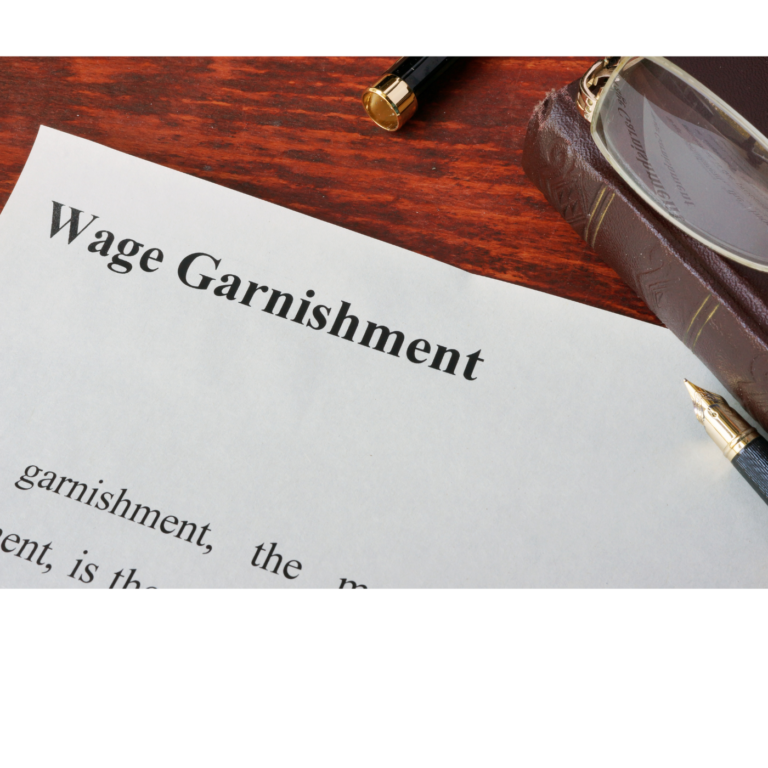Wage garnishment is a legal procedure where a portion of your earnings is withheld by your employer and paid directly to a creditor to satisfy a debt. While you can enlist credit companies to fix credit and errors by sending a credit dispute letter, they cannot prevent or halt legitimate wage garnishments. Let’s discuss wage garnishment implications beyond financial concerns, impacting legal rights, professional relationships, and personal wellbeing.
The Basics of Wage Garnishment
Wage garnishment is a legally sanctioned process where creditors, upon obtaining a court order, can direct your employer to withhold a portion of your earnings to repay debts. This process is strictly governed by regulations to ensure that you can still retain enough income for basic expenses. Note that you can negotiate or challenge the garnishment.
A wage garnishment doesn’t appear on your credit report. However, the underlying debt and any associated judgments or collections can negatively affect your score. One important step on how to start building credit is to ensure that the judgment status is updated on your credit report to ‘satisfied’ or ‘paid.’
Types of Debts that Lead to Wage Garnishment
Wage garnishment can come from various debt sources, each with its own set of legal stipulations.
Child Support and Alimony
Perhaps the most widely recognized cause for wage garnishment, delinquent child support or alimony payments can lead to significant garnishments. In fact, federal laws often allow up to 50% to 65% of disposable earnings to be garnished for these obligations, with the exact percentage depending on various factors, including whether you support another child or spouse.
Unpaid Taxes
Governments can garnish wages for unpaid taxes at the federal or state level. The Internal Revenue Service (IRS) doesn’t always need a court order to begin the garnishment process for delinquent federal taxes. The percentage garnished can vary based on your deduction rate and the number of dependents you have.
Defaulted Student Loans
Falling behind on student loan payments can also lead to wage garnishment. The US Department of Education, or agencies collecting on its behalf, can garnish up to 15% of disposable pay without a court order, provided they have given you ample notice and opportunity to make voluntary payments.
Personal Loans and Credit Card Debt
Lenders and credit card companies can seek wage garnishment if you default on personal loans or credit card bills. However, creditors typically must first obtain a court judgment against you.
Medical Debts
Unpaid medical bills are a common source of debt in the US. If you fail to settle these bills, the healthcare provider or a collection agency can take legal action after securing a court judgment.
Legal Processes and Regulations
Wage garnishment is not an arbitrary or unrestrained process; it operates within a legal framework defined by both federal and state laws. At the federal level, the Consumer Credit Protection Act’s Title III sets the standard, stipulating that no more than 25% of an individual’s disposable earnings (or the amount by which a person’s weekly earnings exceed thirty times the federal minimum wage) can be garnished. This law ensures that you retain a significant portion of your earnings for essential living costs.
Some debts, like child support or federal taxes, have their own garnishment rules. Employers must be familiar with these regulations to ensure legal compliance and safeguard the rights of all parties involved.
Impact on the Employee
As an employee who is subjected to wage garnishment, you have certain legal rights and protections, such as safeguards against termination due to garnishment and ways to dispute the garnishment if incorrect or overly burdensome. Federal and state laws may provide for exemptions or reductions in garnished amounts based on financial hardship or specific circumstances. The impact of wage garnishment can be profound, with financial strains potentially leading to emotional and psychological stress.
Responsibilities of Employers
Employers play a pivotal role in the wage garnishment process–they are responsible for withholding the appropriate amounts from your wages and forwarding them to the creditor. They must handle these situations delicately, ensuring open communication and respecting your privacy. Employers must also adhere to laws prohibiting retaliation or discrimination against employees facing garnishment.
How to Avoid Wage Garnishment
Avoiding wage garnishment requires proactive financial management and open communication with creditors. You can negotiate payment plans or settlements by addressing debts early, reducing the risk of court-ordered garnishments.
If the debt becomes overwhelming, seek financial counseling to find strategies to manage your liabilities. Legal advice can also offer protection and inform you of your rights.
The Phenix Group is dedicated to turning your financial struggles into success stories. We understand that everyone’s case is unique. Our expert team is backed by attorneys who can provide personalized credit repair solutions. With The Phenix Group by your side, you’re not just fixing credit–you’re reclaiming your financial future.

